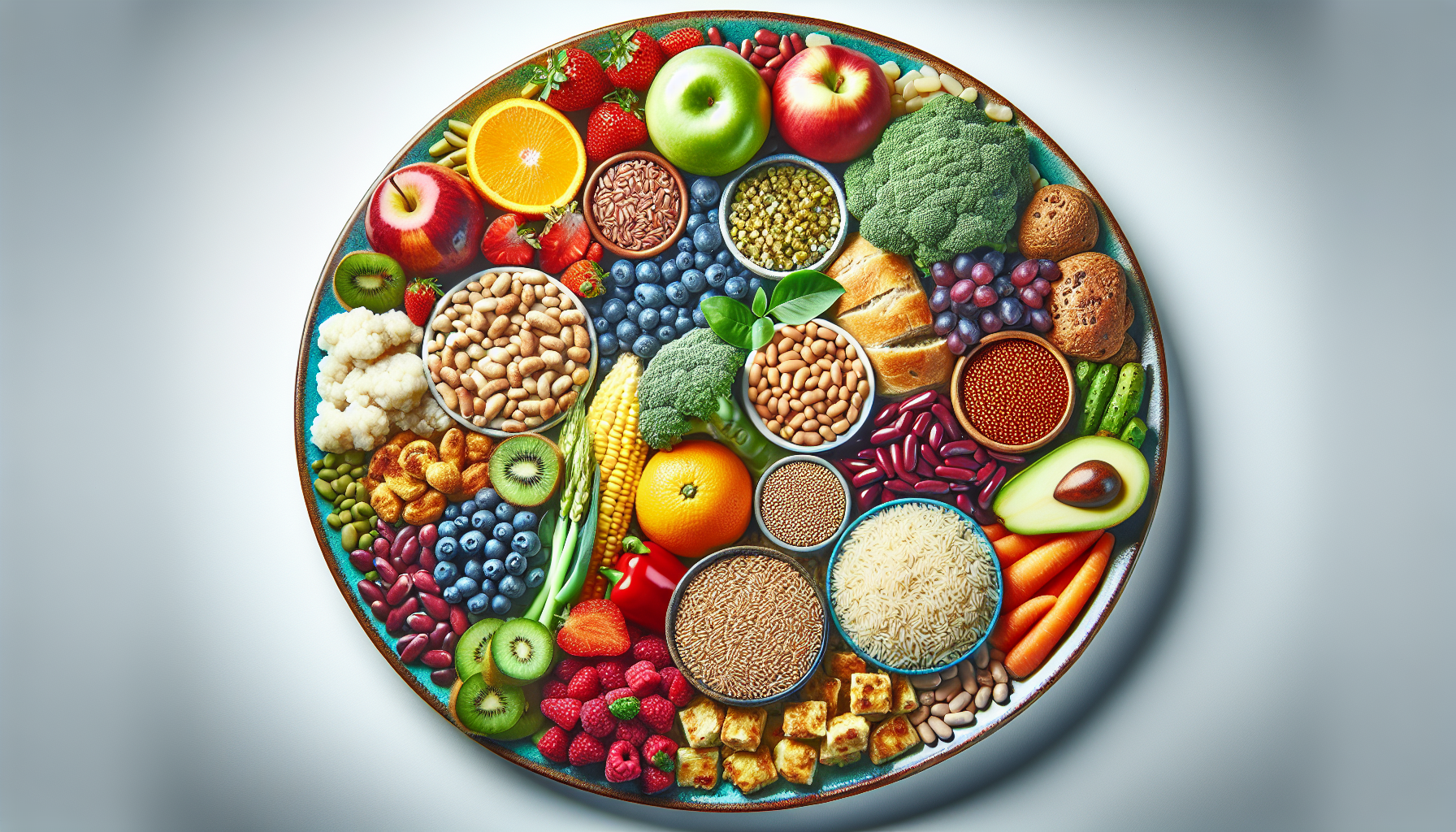Are you curious about how a high-carb diet affects your blood sugar levels? Well, recent scientific studies have shed light on this very topic, providing valuable insights into the relationship between high-carbohydrate intake and blood sugar levels. One study conducted by researchers at Harvard University found that consuming high amounts of carbohydrates can cause a rapid increase in blood sugar levels, leading to various health implications such as insulin resistance and an increased risk of developing type 2 diabetes. Another study published in the American Journal of Clinical Nutrition demonstrated that individuals who followed a high-carb diet had consistently higher blood sugar levels throughout the day compared to those who followed a low-carb diet. These findings highlight the importance of understanding the impact of carbohydrate intake on blood sugar levels and the potential implications for overall health and well-being.
Discover the Ultimate Weight Loss Secrets Here!
Overview of High-Carb Diet
Definition of High-Carb Diet
A high-carb diet is a dietary approach that emphasizes the consumption of foods that are rich in carbohydrates. Carbohydrates are one of the three macronutrients, along with proteins and fats, that provide energy to the body. In a high-carb diet, carbohydrates make up a significant portion of the total caloric intake, typically ranging from 45% to 65% of total daily calories.
Composition of a High-Carb Diet
A high-carb diet includes a variety of carbohydrate-rich foods such as grains, legumes, fruits, and starchy vegetables. These foods provide the body with a readily available source of energy, as carbohydrates are quickly converted into glucose during digestion. Additionally, high-carb diets also often include a moderate intake of proteins and fats to ensure a balanced nutrient profile.
Recommended Carbohydrate Intake
The recommended carbohydrate intake varies depending on factors such as age, sex, activity level, and overall health. However, the Dietary Guidelines for Americans suggest that carbohydrates should make up around 45% to 65% of daily caloric intake for most individuals. It is important to note that individual carbohydrate requirements may vary, and consulting a healthcare professional or a registered dietitian is advisable to determine the most suitable carbohydrate intake for specific needs.
Carbohydrates and Blood Sugar
Carbohydrate Digestion
When carbohydrates are consumed, they undergo digestion in the body to break down into their simplest form, glucose. This glucose is then absorbed into the bloodstream, resulting in an increase in blood sugar levels. The rate at which carbohydrates are digested can vary depending on the type and quality of carbohydrates consumed.
Glycemic Index and Glycemic Load
The glycemic index (GI) is a ranking system that classifies carbohydrates based on their ability to raise blood sugar levels. High-GI foods, such as white bread and sugary beverages, are quickly digested and cause a rapid increase in blood sugar. On the other hand, low-GI foods, like whole grains and vegetables, are digested more slowly, leading to a slower rise in blood sugar levels.
Glycemic load (GL) takes into account the glycemic index and serving size of a food. It provides a more accurate measure of the blood sugar response to a specific food. Foods with a high glycemic load result in a greater increase in blood sugar levels compared to foods with a low glycemic load.
Insulin Production
Insulin is a hormone produced by the pancreas that plays a crucial role in regulating blood sugar levels. When blood sugar levels rise, the pancreas releases insulin to facilitate the uptake of glucose by the cells, where it can be used for energy or stored for later use. In the case of a high-carb diet, where frequent spikes in blood sugar are common, the body may need to produce more insulin to maintain blood sugar control.
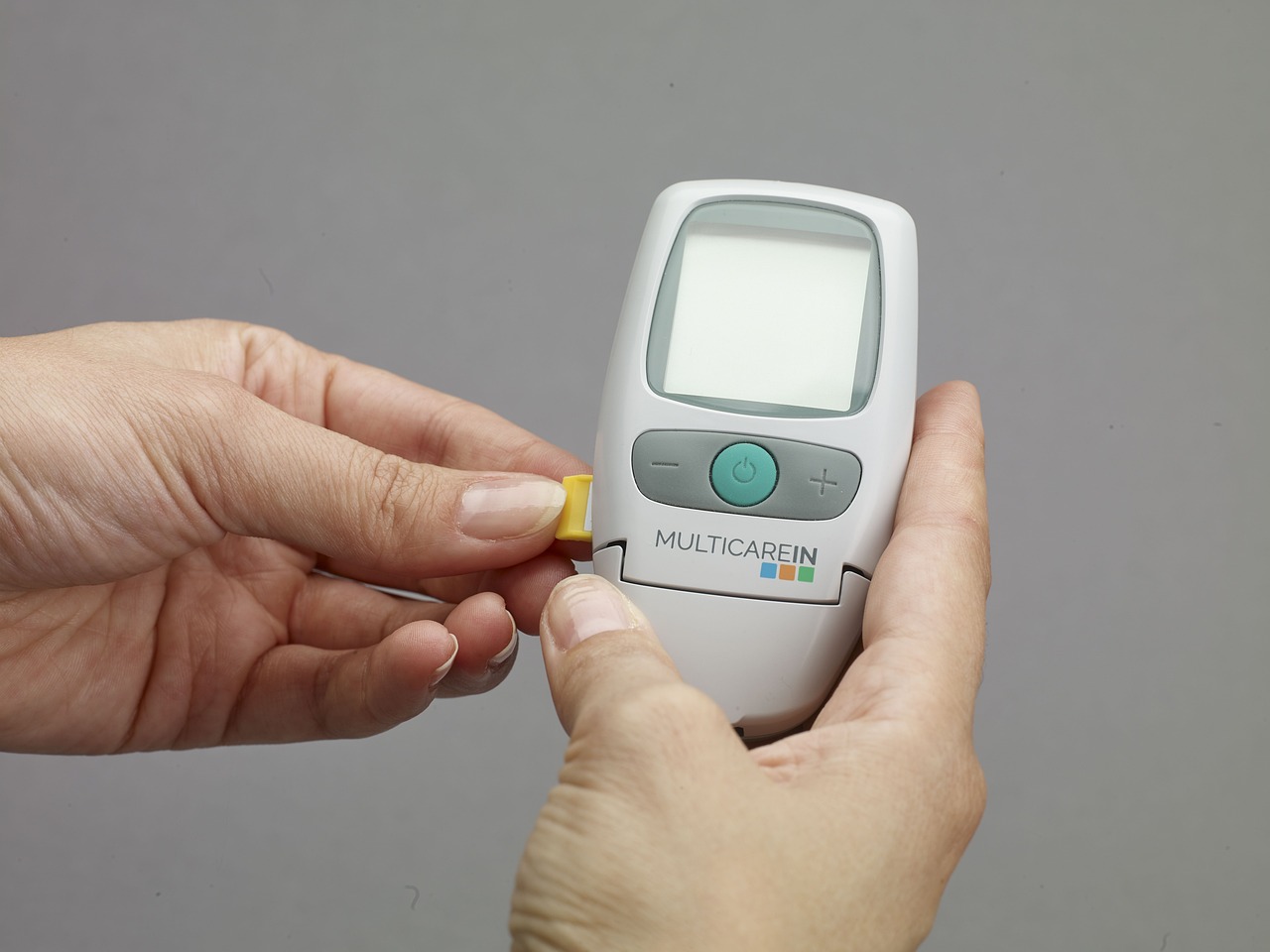
Click Here for Proven Fat-Burning Strategies!
Effects of High-Carb Diet on Blood Sugar
Immediate Blood Sugar Spike
Consuming a high-carb meal or snack can cause a rapid increase in blood sugar levels shortly after eating. This is particularly evident when consuming high-GI or high-GL foods, as they are digested quickly and result in a rapid release of glucose into the bloodstream. While the body is generally well-equipped to handle these temporary spikes, frequent and significant blood sugar fluctuations may have long-term consequences.
Long-Term Blood Sugar Control
Consistently consuming a high-carb diet without proper portion control or balancing with other macronutrients can lead to long-term difficulties in blood sugar control. If blood sugar levels remain elevated for extended periods, the pancreas may struggle to produce sufficient amounts of insulin, leading to insulin resistance and potentially the development of type 2 diabetes. Maintaining stable blood sugar levels through a balanced diet and lifestyle is crucial for overall metabolic health.
Risk of Developing Type 2 Diabetes
Research has shown a correlation between high-carb diets and an increased risk of developing type 2 diabetes. A study published in the journal PLOS ONE found that a higher intake of carbohydrates, especially from high-GI sources, was associated with an increased risk of developing type 2 diabetes. It is important to note that while high-carb diets alone may contribute to the risk, other factors such as overall diet quality and lifestyle choices also play a significant role.
Scientific Studies on High-Carb Diet and Blood Sugar
Study 1: Effects of High-Carb Diet on Blood Sugar Regulation
A study conducted by researchers from the Harvard T.H. Chan School of Public Health examined the effects of a high-carb diet on blood sugar regulation and insulin sensitivity. The study found that individuals who followed a high-carb diet experienced greater fluctuations in blood sugar levels and had reduced insulin sensitivity compared to those on a lower-carb diet. These findings suggest that high-carb diets may have negative implications for blood sugar control.
Study 2: Relationship Between High-Carb Diet and Insulin Resistance
In a study published in the American Journal of Clinical Nutrition, researchers investigated the relationship between high-carb diets and insulin resistance. The study concluded that a higher intake of carbohydrates, particularly those with a high glycemic load, was associated with an increased risk of developing insulin resistance. Insulin resistance is a condition where the body’s cells become less responsive to the effects of insulin, leading to difficulty in blood sugar regulation.
Study 3: Role of High-Carb Diet in the Development of Diabetes
A longitudinal study published in the journal Diabetes Care examined the role of a high-carb diet in the development of diabetes. The study followed a large cohort of individuals over a span of several years and found that those with the highest carbohydrate intake had a significantly higher risk of developing type 2 diabetes compared to those with lower carbohydrate intake. These findings highlight the importance of considering the quantity and quality of carbohydrates in relation to diabetes risk.
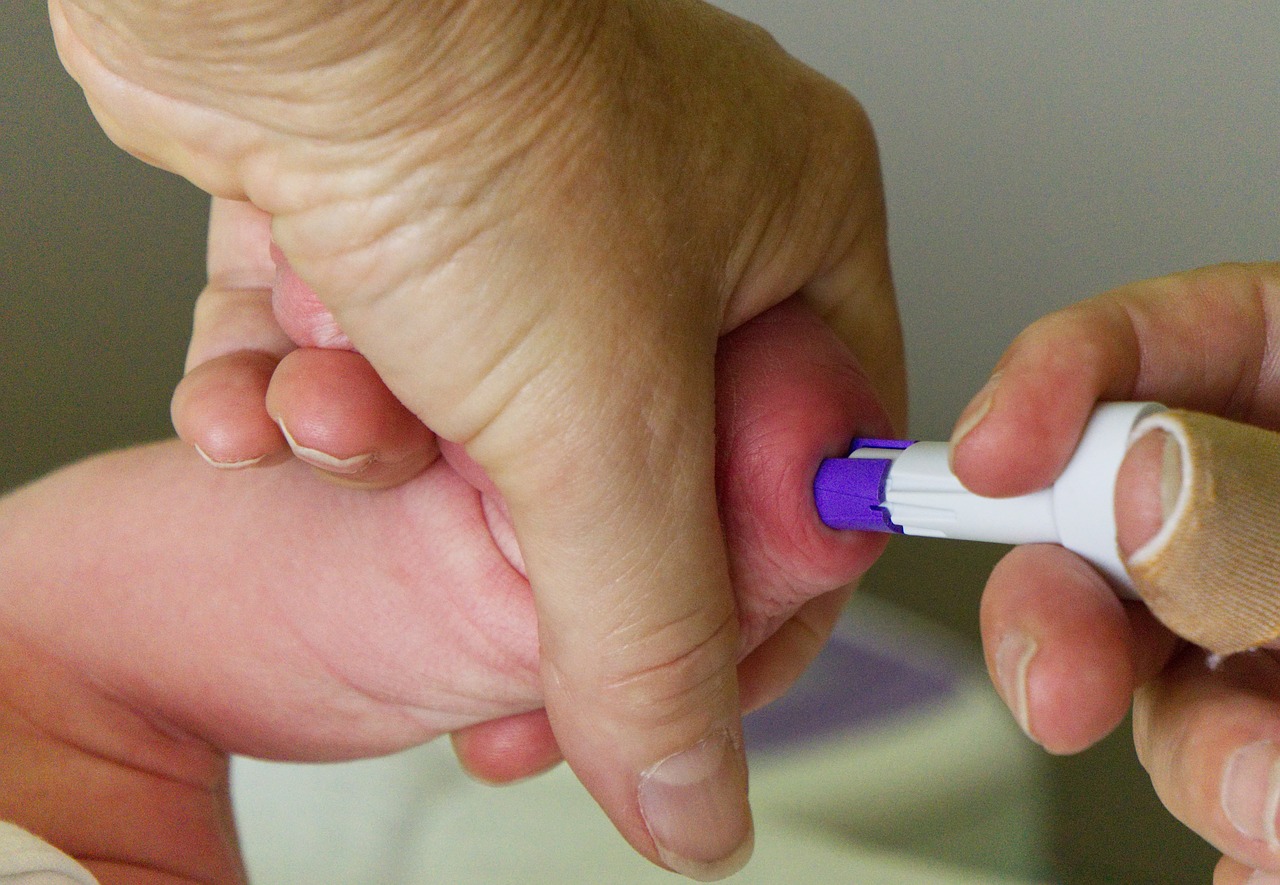
Unlock Your Path to a Healthier You!
Management of Blood Sugar Levels
Carbohydrate Counting
Carbohydrate counting is a method used to manage blood sugar levels, particularly for individuals with diabetes. It involves tracking the amount of carbohydrates consumed in meals and snacks and adjusting insulin doses accordingly. This approach allows for better control of blood sugar levels by matching insulin doses with carbohydrate intake.
Balancing Macros in a High-Carb Diet
While a high-carb diet is rich in carbohydrates, it is essential to balance the intake of other macronutrients as well. Including adequate protein and healthy fats in meals can help slow down the absorption of carbohydrates, resulting in more stable blood sugar levels. This can be achieved by incorporating lean proteins, such as poultry, fish, and tofu, and healthy fats, such as avocado, nuts, and olive oil, into the diet.
Medical Interventions
For individuals with diabetes or other medical conditions affecting blood sugar levels, medical interventions may be necessary to manage blood sugar effectively. These interventions can include medication, insulin therapy, or other specialized treatments prescribed by healthcare professionals. It is crucial to work closely with a healthcare team to determine the most appropriate management approach based on individual needs.
Health Implications of High-Carb Diet on Blood Sugar
Weight Management
The impact of a high-carb diet on weight management can be complex. While a high-carb diet can provide energy for physical activity and support muscle glycogen stores, excessive carbohydrate consumption without a calorie deficit can lead to weight gain. Additionally, high-GI and high-GL carbohydrates may contribute to increased hunger and cravings, making weight management more challenging. Balancing carbohydrate intake with other macronutrients and focusing on whole, unprocessed foods can support healthy weight management.
Cardiovascular Health
The relationship between high-carb diets and cardiovascular health is still a topic of debate among experts. While some studies suggest that high-carb diets, particularly those high in refined carbohydrates, may increase the risk of cardiovascular disease, other studies indicate that the quality of carbohydrates consumed plays a more significant role. Emphasizing whole grains, fruits, and vegetables as the primary sources of carbohydrates can promote cardiovascular health by providing essential nutrients and fiber.
Energy Levels and Mood
Carbohydrates are the body’s main source of energy, and a high-carb diet can provide the necessary fuel for physical and mental activities. However, the type and timing of carbohydrate consumption can influence energy levels and mood. Consuming high-GI or high-GL carbohydrates can cause energy crashes and mood swings due to rapid fluctuations in blood sugar levels. Choosing complex carbohydrates, such as whole grains and vegetables, and pairing them with proteins and fats can help maintain steady energy levels and support stable moods.
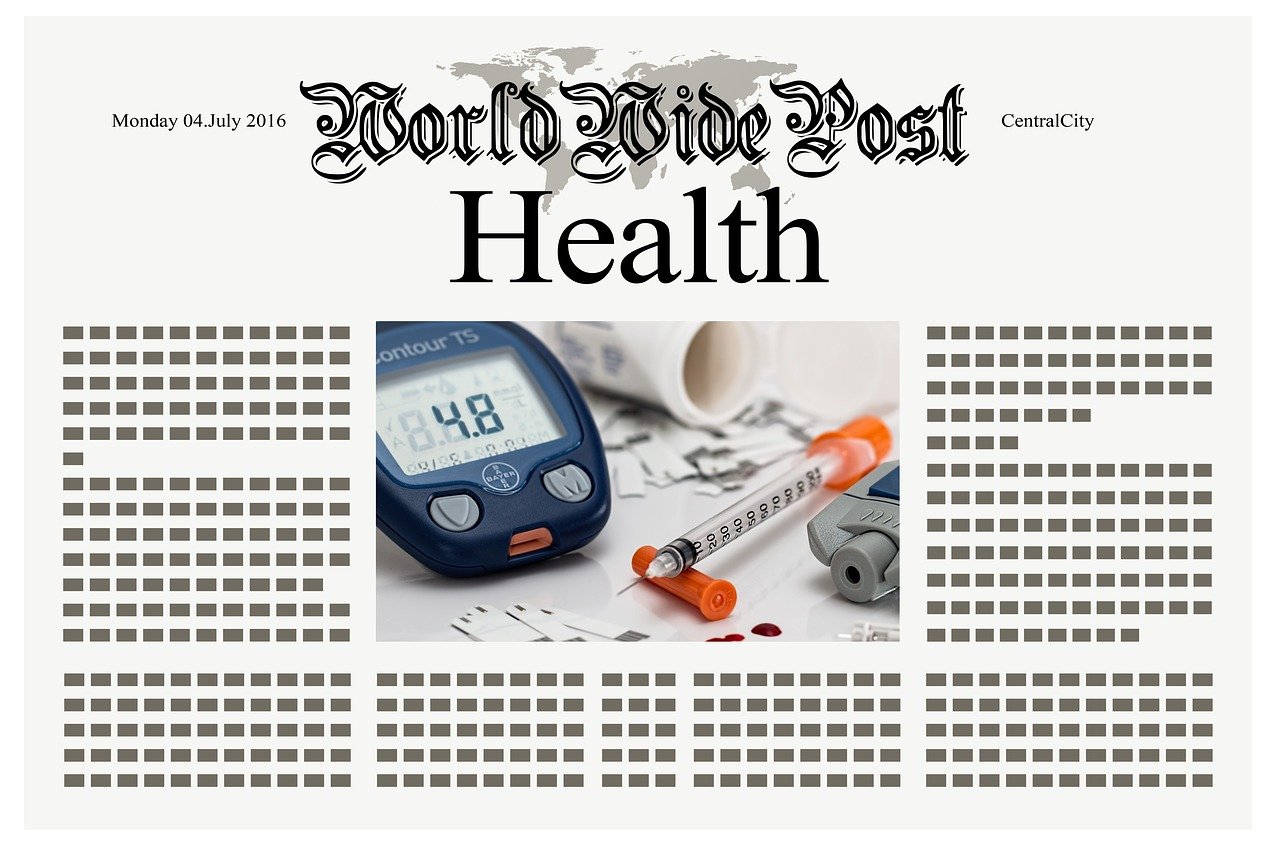
Strategies for Controlling Blood Sugar with High-Carb Diet
Choose Whole Grains
Opting for whole grains, such as quinoa, brown rice, and whole wheat bread, instead of refined grains can help regulate blood sugar levels. Whole grains are digested more slowly, resulting in a gradual release of glucose into the bloodstream and a more stable blood sugar response. They also provide essential nutrients and fiber, contributing to overall health and wellbeing.
Include Fiber-rich Foods
Fiber plays a crucial role in blood sugar regulation by slowing down carbohydrate digestion and absorption. Including fiber-rich foods, such as fruits, vegetables, legumes, and whole grains, in a high-carb diet can help promote stable blood sugar levels. It is recommended to consume at least 25 grams of fiber per day for optimal health benefits.
Pair Carbohydrates with Protein and Fat
Combining carbohydrates with protein and fat can slow down the absorption of glucose into the bloodstream and prevent rapid blood sugar spikes. Including lean proteins, such as chicken, fish, or tofu, and healthy fats, such as avocado or olive oil, in meals can help balance blood sugar levels and provide a more sustained release of energy.
Role of Physical Activity in Blood Sugar Regulation
Exercise and Insulin Sensitivity
Engaging in regular physical activity can improve insulin sensitivity, allowing the body to utilize glucose more efficiently. Exercise helps muscles take up glucose from the bloodstream, which can help lower blood sugar levels. Both aerobic exercises, such as running or cycling, and resistance training, such as weightlifting, can have positive effects on blood sugar regulation.
Timing and Type of Exercise
The timing and type of exercise can also impact blood sugar levels. Exercising before a meal can help lower the subsequent rise in blood sugar by increasing glucose uptake by the muscles. Additionally, high-intensity interval training (HIIT) has shown promising results in improving blood sugar control. Consulting with a healthcare professional or a qualified fitness trainer can help determine the most suitable exercise regimen based on individual needs and health conditions.
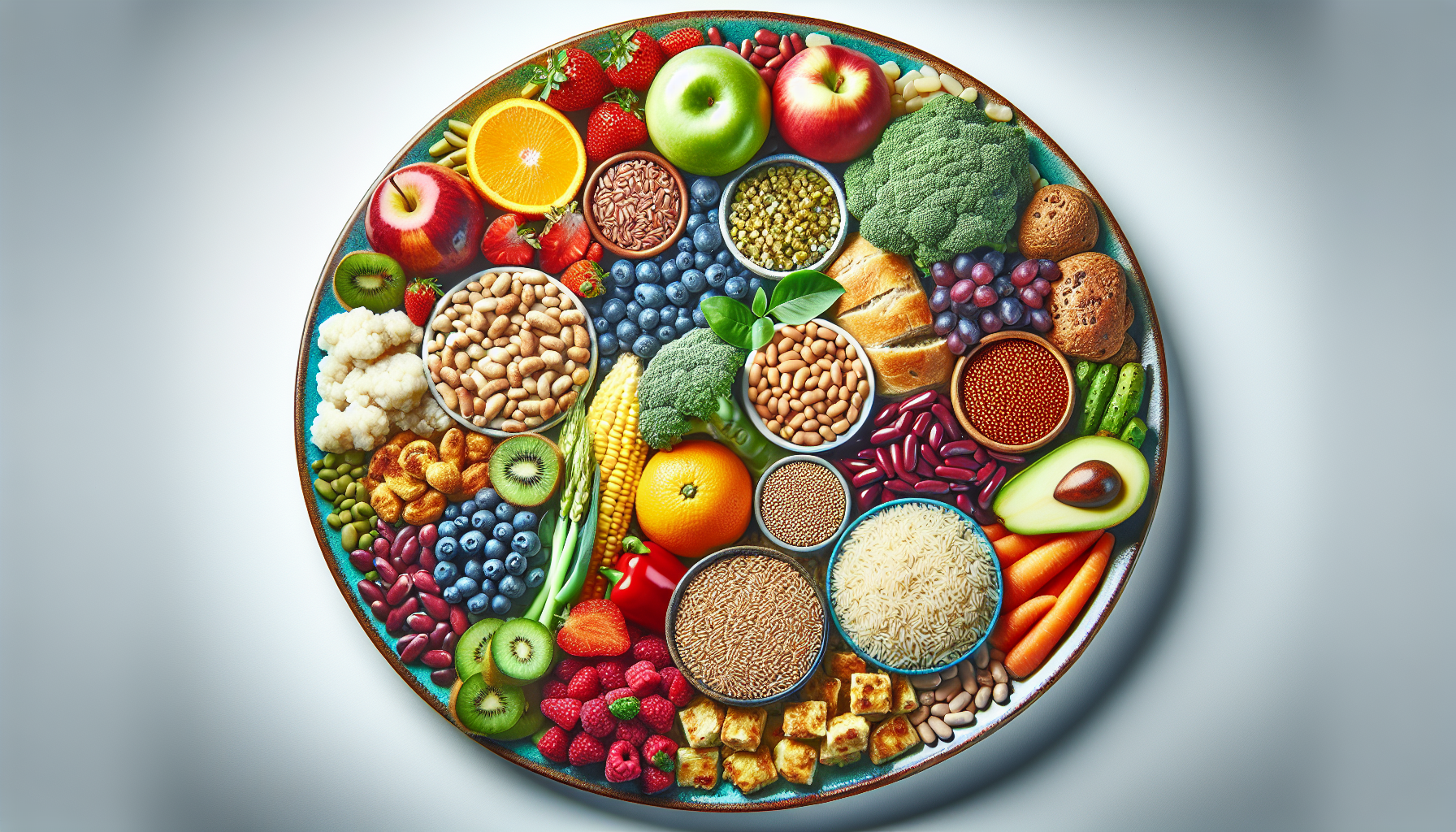
Potential Risks and Considerations
Individual Variations
Individual variations in metabolism and insulin sensitivity can affect how a high-carb diet impacts blood sugar levels. Some people may have better blood sugar control on a high-carb diet, while others may experience difficulties. It is important to listen to your body and monitor blood sugar levels regularly to assess the effects of a high-carb diet on personal health.
Effects on Metabolic Health
For individuals with diabetes or other metabolic disorders, a high-carb diet may require careful monitoring and adjustments. The impact of carbohydrate intake on metabolic health can vary depending on factors such as overall diet quality, physical activity levels, and individual health conditions. Proper medical supervision and individualized dietary guidance are essential to manage blood sugar levels effectively.
Consultation with Healthcare Professional
Before making any significant changes to your diet or exercise routine, it is advisable to consult with a healthcare professional or a registered dietitian. They can provide personalized guidance based on individual needs and health conditions, ensuring that blood sugar levels are adequately managed and overall health is optimized.
Conclusion
In conclusion, a high-carb diet can have both immediate and long-term effects on blood sugar levels. While it is essential for the body to obtain carbohydrates for energy, the type and quality of carbohydrates consumed and their impact on blood sugar control should be considered. Scientific studies have highlighted the potential risks of consuming a high-carb diet, such as immediate blood sugar spikes and long-term difficulties in blood sugar regulation. However, with proper management and strategic dietary choices, a high-carb diet can still be incorporated into a healthy lifestyle. Personalized approaches, including carbohydrate counting, macronutrient balancing, and regular physical activity, can help individuals effectively control blood sugar levels while enjoying the benefits of a high-carb diet. Future research should continue to explore the intricate relationship between carbohydrates, blood sugar, and overall metabolic health to further refine dietary recommendations and improve the understanding of individual variability in response to high-carb diets.

